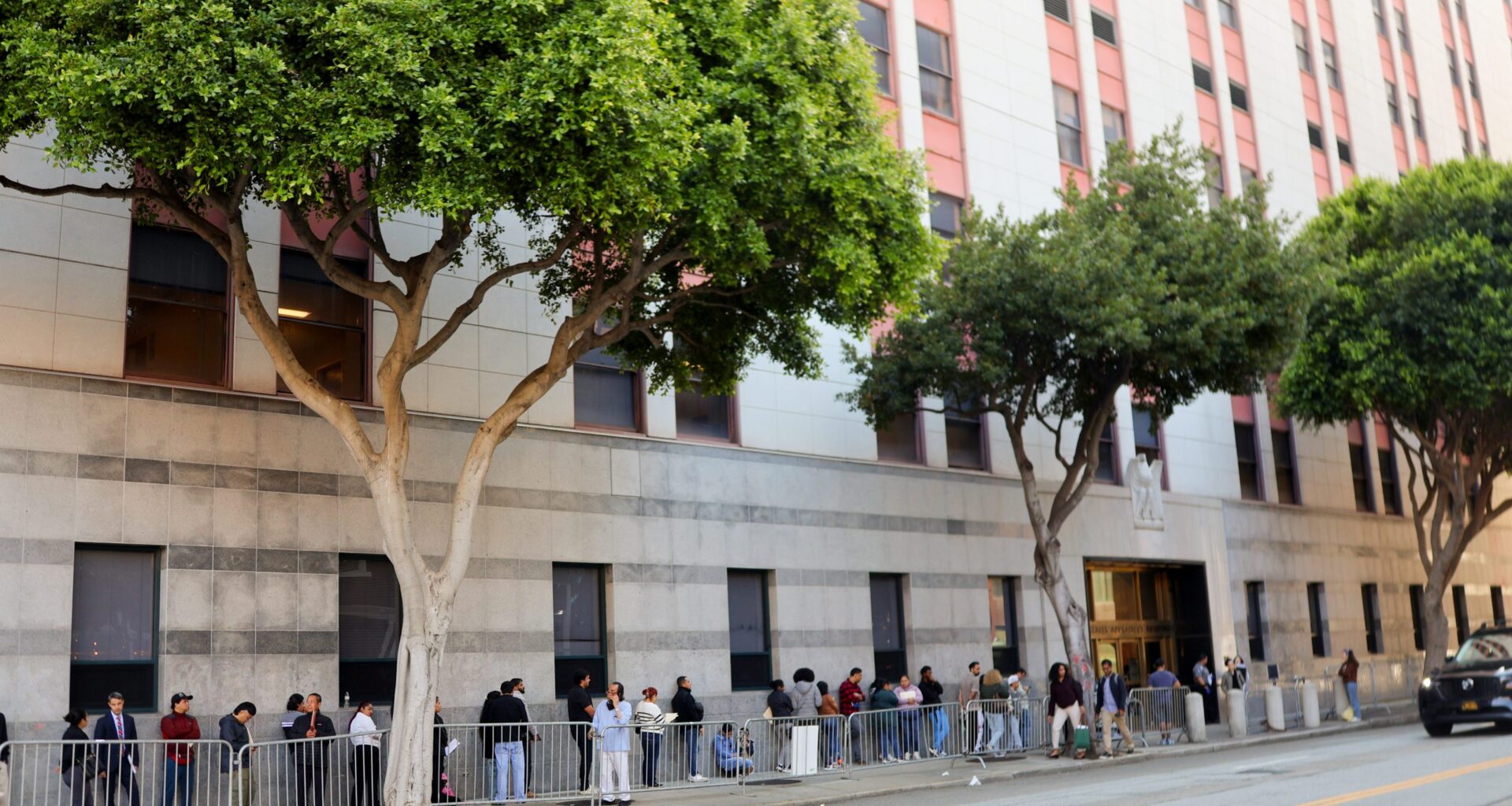Supervisor Matt Dorsey rolled up to San Francisco immigration court on an e-bike Friday morning, and became the second city supervisor so far this year to attend asylum hearings and visit detention facilities here after Jackie Fielder toured the building in late September.
In his two-hour tour of 630 Sansome St. downtown, Dorsey pledged to help find funds for the pro-bono legal aid being provided to asylum-seekers at the court.
His biggest “takeaway,” he said, was that “the services provided by the non-profits doing immigration work are incredibly worthwhile.” He emphasized the “attorney of the day” program — an offering from the Bar Association of San Francisco that puts pro-bono lawyers in courtrooms — and said there is “political consensus to fund these services” despite the city’s budget deficit.
“As vice chair of the Budget and Appropriations Committee, I have a front row seat,” Dorsey said. “In this space there is such a climate of fear that philanthropists and law firms have for supporting immigration services,” he said, but “we need their backbone, we need their billions.”
The attorney of the day program is a lifeline: Asylum-seekers almost always appear in court without a lawyer, and often the only legal counsel they receive is from the attorney of the day placed in court by the Bar.
Milli Atkinson, the director of the immigrant defense team at the Bar Association of San Francisco who invited Dorsey, and Fielder before him, said she is facilitating tours of the ICE facility to let city officials know what it’s like inside 630 Sansome St.
The ICE headquarters was in mid-September the subject of a lawsuit filed by the ACLU and local groups slamming “inhumane” conditions inside its holding cells. The building is both ICE’s field office in the city and the home of one of San Francisco’s two immigration courts.
“We want our elected officials to understand what is going on in their city and the fear that the immigrant community has,” said Atkinson. Immigrants are “afraid to go to school, to go to work, to court and their ICE check-ins,” she said, and city officials should come to court “because this is where their constituents are.”
Dorsey started by sitting inside Judge Joseph Park’s courtroom in the last row, observing morning hearings that — since the spring — have frequently been followed by ICE officers arresting and detaining asylum seekers. Throughout the proceedings, he could be seen scrolling on his phone, intermittently glancing up.
After about an hour and 15 minutes, he exited to the fourth floor lobby and privately met with a family of immigrants for 10 minutes. “It’s heartbreaking to see people living in the fear that they’re living in,” he said to Mission Local. To the family he said: “You have the support of the city and we will do what we can.”
He then accompanied Atkinson, Lariza Dugan-Cuadra of the non-profit CARECEN SF, and two reporters up to the sixth floor, where ICE’s holding cells are located. The group only got to see an empty lobby and a waiting room, where detained asylum-seekers from across the Bay Area can speak to their attorneys through phones on the wall.
No one from ICE accompanied the group.
Back in court earlier, while Dorsey was seated in the back row, each bench was filled with about five people sitting shoulder-to-shoulder. A Colombian man fidgeted nervously in a puffer jacket and wrote an emergency phone contact on his left hand. Another asylum-seeker squeezed his partner’s hand in anticipation.
Most were there without lawyers, and many needed the help of a translator.
For those who spoke languages other than English or Spanish, Judge Park called a third-party interpretation service. In one case, the operator’s crackly voice rang out over the speaker.
“Your connection is terrible, I’m going to re-call,” the judge said.
“I’m sorry?” the translator replied, unable to hear.
“You would think an organization that relies on their phone service would have service,” Park said to his clerk. In the audience, a few shook their heads in frustration.
Soon after, Park got a hold of three different interpreters who communicated with three clients in, respectively, Hindi, Russian and a dialect of Mam, an indigenous Mayan language spoken in Guatemala.
No arrests were made, and those who had finished their hearings exited the courtroom, seemingly relieved.

